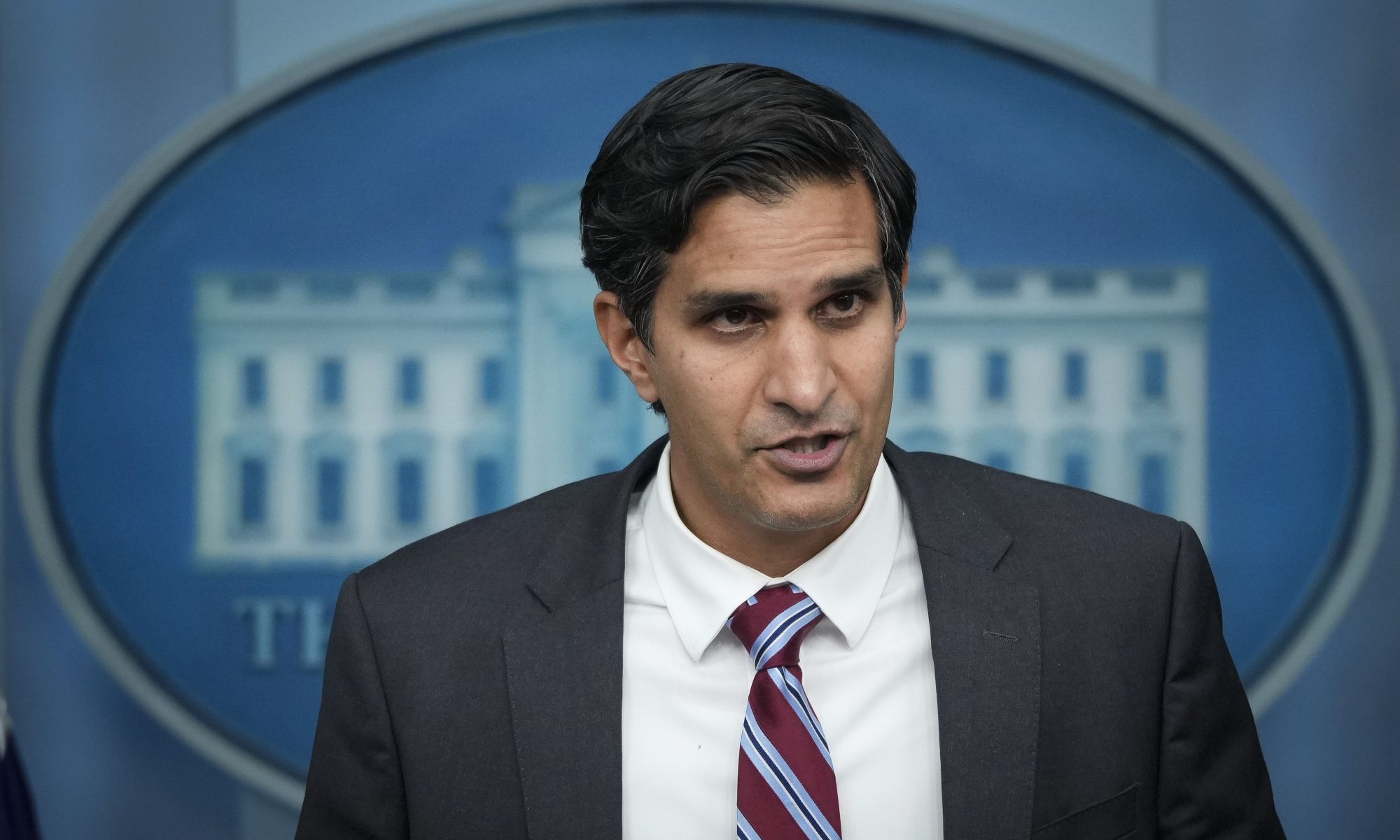It’d be foolish for people to vote against their own interests.
Will Biden Get the Final Say Over a Controversial Crypto Accounting Rule?
Critics of SAB 121, introduced in March 2022, have called the rule “obscure,” a “diktat” and a “pernicious weed.”
Republican Lawmakers Introduce Legislation to Ban a CBDC in the U.S. … Again
Another group of Republican lawmakers has introduced legislation to block efforts to introduce a digital dollar.
Did President Biden Just Endorse Bitcoin?
The octogenarian politician is sporting laser eyes on Twitter, seemingly unaware it is a symbol of support for the cryptocurrency.
Bitcoin Mining and the Politicization of a Once Reputable Federal Agency
The Department of Energy’s statistics wing is feigning an “emergency” to attack legitimate U.S. businesses and score political points, Texas Blockchain Council President Lee Bratcher and Chamber of Digital Commerce CEO Perianne Boring write.
Polymarket Traders See 55% Chance of Second Trump Presidency
Polymarket Traders See 55% Chance of Second Trump Presidency
No, a Trump Victory Might Be Bad for Crypto
A response to Politico’s article predicting good times if the ex-POTUS wins re-election.
FTX and the Case for Web3 YIMBYism
Crypto-Terrorism Concerns? Senator Warren And 100 Lawmakers Push Biden For Swift Response
In the middle of escalating tensions between Israel and Hamas, over 100 legislators, led by Senators Elizabeth Warren and Roger Marshall and Representative Sean Casten, have issued a bipartisan note urging the Biden administration to address alleged close relations between crypto and terrorism.
The lawmakers express alarm over reported evidence suggesting that Hamas successfully evaded US sanctions, acquiring millions of dollars through crypto assets. They are now pressing the administration to clarify its strategy for tackling this critical national security threat.
Lawmakers Sound Alarm On Crypto-Financed Terrorism
The bipartisan letter, addressed to National Security Advisor Jake Sullivan and Brian Nelson, Under Secretary for Terrorism and Financial Intelligence at the Department of the Treasury, highlights the concerns surrounding Hamas and Palestinian use of crypto funding.
The letter states that between August 2021 and June of the following year, these organizations allegedly raised over $130 million in digital assets, with millions being transferred between them.
The lawmakers stress the urgency of the situation, given the danger posed by the financing of militant organizations, and call on the Biden administration to provide details about its plan to prevent the use of crypto for terrorism financing.
In their letter, the lawmakers cite an article from the Wall Street Journal, which reports that researchers studying Hamas’s financing allegedly confirm that crypto remains one of several tools employed by the group to raise funds.
While it has not been determined whether the crypto received by Hamas directly financed the October 7th terrorist attack on Israel, the group’s explicit solicitations for crypto have left no doubt about their intentions.
Furthermore, the lawmakers highlight that both the Israeli and US governments have previously warned about the threat posed by crypto in the fight against terrorism. Israel has even seized crypto assets from terrorist organizations like Hamas and Hezbollah.
However, experts believe that only a fraction of the digital asset funds flowing through Hamas have been successfully captured.
Urgent Call To Curtail Alleged Illicit Activity
In light of this, the lawmakers call for decisive action to address the risks associated with illicit crypto activity to prevent further tragedies.
As Congress considers legislative proposals to mitigate alleged money laundering and illicit finance risks, they urge the Biden administration to swiftly and comprehensively act to curtail such activities and safeguard national security, as well as the security of US allies.
The lawmakers have set a deadline of October 31, 2023, for the Treasury and the Biden administration to respond to questions about their plans to address the serious national security threats arising from using crypto to finance terrorism.
As the debate surrounding the regulation of digital assets continues to intensify, the alleged crypto-financed terrorism adds another layer of complexity.
Featured image from Shutterstock, chart from TradingView.com
An Open Letter to President Biden Regarding Bitcoin Mining
US DoJ Goes After Rogue Exchanges As Crypto Crimes Grow ‘Significantly’
Eun Young Choi, the first director of the National Cryptocurrency Enforcement Team (NCET), has told reporters that crypto-related crimes have risen significantly in recent years. Through her team, the United States Department of Justice (DoJ) now plans to go after rogue exchanges that knowingly allow criminals to launder money.
NCET Wants Exchanges To Be Compliant
The Financial Times reports that Choi is concerned about the spike in crypto-enabled crimes and is setting their eyes on cryptocurrency exchanges, mixers, and tumblers.
Open-source token mixers such as Tornado Cash, a protocol that United States authorities have already sanctioned, are widely used by criminals to launder stolen assets. Because they make it hard for authorities to trace transactions on public ledgers, hackers are actively exploiting these tools to obfuscate transactions and evade justice.
NCET and the DoJ will go after crypto companies that, though compliant with existing laws on paper, have allowed themselves to be used by criminals; a development that Choi says is “problematic”.
By targeting these rogue agents, the director said they would send a “deterrent message” and hope their involvement would have a multiplier effect.
Specifically, NCET seems to have a problem with cryptocurrency exchanges that skirt anti-money laundering rules and those which don’t comply with know-your-customer (KYC) laws. The enforcement team says going after them could make them invest more in risk-mitigation procedures and comply more with existing rules.
Binance, the world’s largest cryptocurrency exchange, is reportedly one of the exchanges on the radar of the DoJ. Unconfirmed reports suggest that the DoJ, among other agencies, including the United States Securities and Exchange Commission (SEC), is investigating the Changpeng Zhao-led exchange for violating established rules.
US Government’s Position On Crypto
President Joe Biden’s administration has taken a relatively tough stance on cryptocurrencies. Regulators in the United States have been in recent months going after companies they deem to be non-compliant, especially after the collapse of FTX, a cryptocurrency exchange.
The position adopted in the United States, especially on regulation and enforcement, could be one of the strictest in the world. Several officials and policymakers in the country strongly believe cryptocurrencies can pose a significant risk to the stability of their financial infrastructure, which could also impact national security.
In that regard, steps have been taken to increase oversight and, most importantly, double down on regulation of the cryptocurrency scene.
NCET, of which Choi is the first director, was created in October 2021. A department under the DoJ, the team goes after entities, including individuals that misuse digital assets, flout established anti-money laundering rules, or engage in ransomware attacks using cryptocurrencies.
The Reactionary Political Theater of CBDC Bans
The jury is out on whether the benefits outweigh the risks of central bank digital currencies, but stymying research and passing premature legislation comes with its own harms.
The Biden Administration Is Politicizing Crypto
With crypto exchange Coinbase (COIN) last week receiving a Wells Notice signaling impending action from the SEC, and with the CFTC this week suing Binance, another crypto exchange, it feels like the crypto industry is at war with the U.S. government. This could get bad.
US Senator Ted Cruz tries again with new bill to block CBDC

Ted Cruz said it is “more important than ever” to ensure the financial privacy of American citizens is preserved.
USDC’s ‘Black Swan’ Depegging Could Have Been Avoided With Proper Regulatory Framework
Fissures among the progressive left are primarily responsible for the lack of U.S. regulatory progress around stablecoins, says John Rizzo, senior vice president for public affairs at Clyde Group.
CBDCs could be ‘easily weaponized’ to spy on US citizens: Congressman

Congressman Tom Emmer made the anti-CBDC comments to an audience at the Cato Institute, a think tank in Washington.
White House ‘aware of the situation’ at Silvergate, says spokeswoman

The spokeswoman said that she won’t be commenting specifically on Silvergate, but the White House will be actively monitoring the situation.
Ex-Biden Adviser Said Administration Was Pushing for Digital Dollar
A recent top economic advisor for President Joe Biden, Daleep Singh, told U.S. senators on Tuesday that the administration was in active pursuit of a digital dollar as a means to crowd out private cryptocurrencies that enable ransomware and sanctions violations.
Biden’s anemic crypto framework offered us nothing new

The cryptocurrency industry needs substantive proposals that aim to do more than simply mitigate potential damage. The Biden administration’s framework failed to acknowledge crypto’s advantages.




